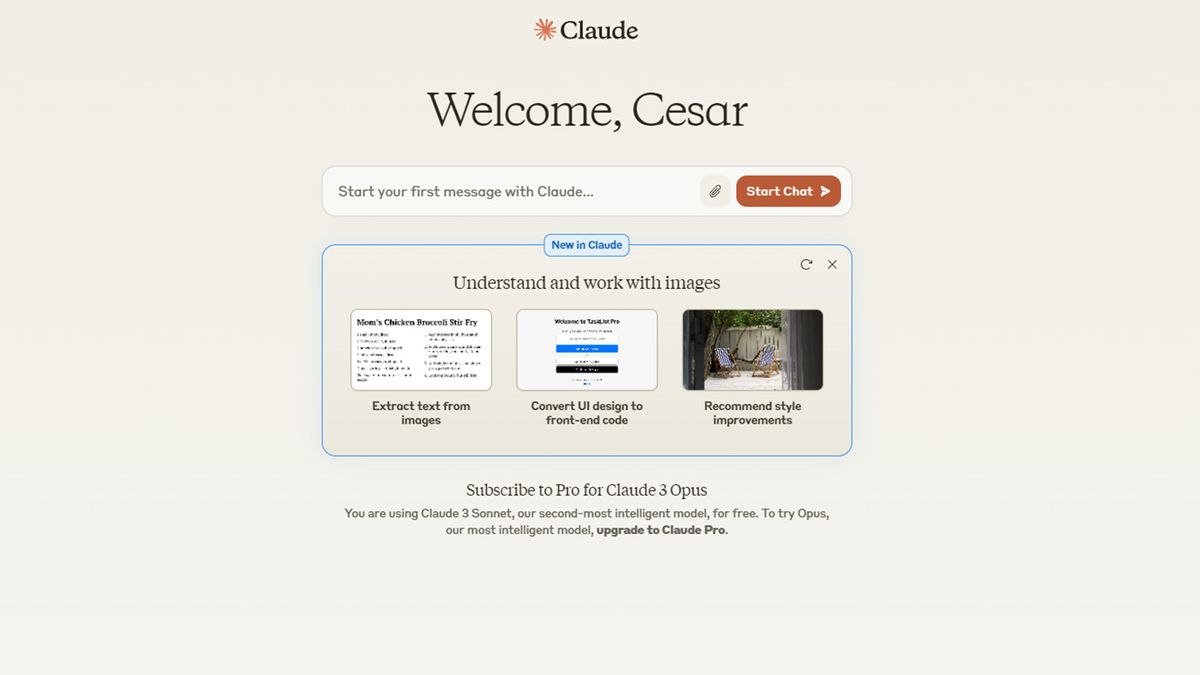Anthropic Introduces Claude 3 AI Models to Compete with ChatGPT and Gemini
Grunnleggende konsepter
Anthropic introduces the Claude 3 family of AI models to compete with industry giants like Google's Gemini and OpenAI's ChatGPT, claiming superior performance across various benchmarks.
Sammendrag
Anthropic unveils the Claude 3 family of AI models, consisting of Haiku, Sonnet, and Opus, each offering different capabilities. Opus is highlighted as the top performer with near-human comprehension levels. Despite improvements in accuracy, hallucinations remain a concern. The trio targets business automation needs and integration into online chatbots.
ChatGPT gets a big new rival as Anthropic claims its Claude 3 AIs beat it
Statistikk
Anthropic claims the trio delivers “powerful performance” due to multimodality, improved accuracy, better context understanding, and speed.
Opus exhibits near-human levels of comprehension for complex tasks.
Opus can recall data with almost perfect detail.
Haiku excels at quick replies and extracting information from unstructured data.
Sonnet is designed for larger-scale tasks like parsing text from images.
Sitater
"The model 'exhibits near-human levels of comprehension… [for] complex tasks'." - Anthropic
"Opus is quite the smart cookie able to solve math problems, generate computer code, and display better reasoning than GPT-4." - Anthropic
Viktige innsikter hentet fra
by Cesar Cadena... klokken www.techradar.com 03-04-2024
https://www.techradar.com/computing/artificial-intelligence/chatgpt-gets-a-big-new-rival-as-anthropic-claims-its-claude-3-ais-beat-it
Dypere Spørsmål
How will integrating Anthropic's AIs into AWS impact online customer interactions
Integrating Anthropic's AIs into AWS can significantly impact online customer interactions by providing businesses with more advanced and efficient tools to engage with their customers. With the introduction of the Claude 3 trio, including models like Sonnet and Opus, businesses utilizing AWS can create customized AI solutions tailored to their specific needs. This customization can lead to improved customer service through chatbots that offer quicker responses, better data recall capabilities, and enhanced reasoning abilities compared to previous AI models.
By leveraging these advanced AI technologies within AWS, online platforms hosted on the service can enhance user experiences by offering more personalized interactions. Customers may receive faster and more accurate responses to inquiries, leading to increased satisfaction and engagement. Additionally, the integration of Anthropic's AIs into AWS could streamline business processes, automate tasks efficiently, and ultimately drive higher levels of customer retention and loyalty.
What potential ethical concerns arise from AI models exhibiting human-like comprehension levels
The development of AI models that exhibit near-human levels of comprehension raises several ethical concerns related to privacy, bias, accountability, and transparency. When AI systems demonstrate sophisticated understanding similar to humans in complex tasks like solving math problems or generating computer code as seen in Opus from Anthropic's Claude 3 family, there is a risk of these systems making decisions that have significant real-world consequences without proper oversight.
One major concern is the potential for biases present in training data or algorithms used in these highly capable AI models. If not carefully monitored and addressed during development stages, biased decision-making could perpetuate discrimination or unfair treatment towards certain individuals or groups when deployed in real-world applications.
Moreover, as these AI systems become more autonomous and display human-like comprehension abilities across various domains such as text analysis or problem-solving tasks like NIAH evaluations conducted on Opus by Anthropic; questions around accountability for their actions arise. Ensuring transparency in how these advanced AIs reach conclusions becomes crucial for maintaining trust among users who interact with them.
Overall, while advancements in AI technology are promising for enhancing efficiency and productivity across industries; it is essential for developers and organizations deploying such powerful models to consider the ethical implications carefully throughout the design process to mitigate potential risks associated with human-like comprehension levels exhibited by these AIs.
How might the development of specialized AIs like Haiku and Sonnet influence future AI applications beyond business automation
The development of specialized AIs like Haiku focused on quick replies from unstructured data sources or Sonnet designed for parsing text from images has broader implications beyond business automation scenarios. These specialized AI models catered towards specific use cases showcase a trend towards niche-focused applications within artificial intelligence research which could shape future innovations across various domains.
In fields such as healthcare or education where quick access to information is critical; an AI model like Haiku could revolutionize how professionals retrieve relevant data rapidly improving decision-making processes based on real-time insights extracted from diverse sources.
Similarly,
Sonnet’s ability at larger-scale operations involving menial tasks automation combined with image-text parsing capabilities opens up possibilities for streamlining workflows not only within businesses but also potentially aiding researchers analyzing vast amounts of visual content efficiently.
As specialized AIs continue evolving alongside general-purpose counterparts like Opus aimed at complex reasoning tasks; we may see a shift towards hybrid approaches combining domain-specific expertise with broad cognitive abilities resulting in more versatile intelligent systems capable of addressing multifaceted challenges effectively outside traditional business settings.
0
